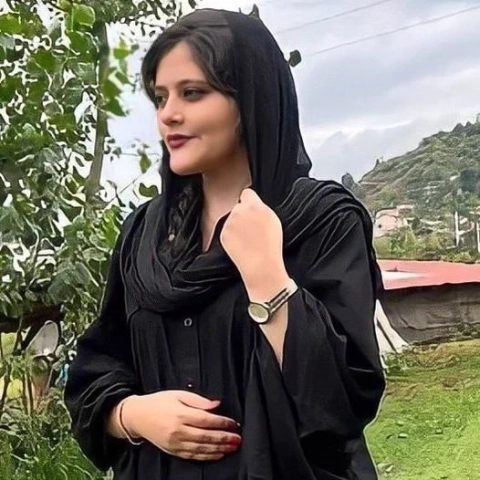As tensions between Israel and Iran continue to escalate, authorities in Tehran have significantly intensified the enforcement and activity of security forces in Iranian cities in recent weeks. This heightened security posture is in response to concerns of a potential resurgence of hijab protests.
This Saturday marks the anniversary of the tragic death of Mahsa Amini, a 22-year-old woman who was brutally beaten to death by Iranian 'Morality Police' officers due to her improper wearing of a hijab. In the wake of this anniversary, there have been calls for renewed street protests, and it is evident that the regime is taking proactive measures to prevent such demonstrations.
Reports from Iranian activists and journalists indicate an increased presence of police officers and other branches of the country's internal security forces, including the notorious Basij forces, which played a substantial role in suppressing protests last year. There have been reports of heightened troop deployment in Tehran and major cities, with these forces being well-equipped and armed, seemingly with the intention of dissuading citizens from participating in protests.
Yet Biden is giving $6B to these scumbags. From the shining city on a hill to aiding and abetting terrorists... "Iran violently crushed peaceful protests in wake of hijab protests, U.S. commission says" https://t.co/634gBIggzs
— Tammy Bruce (@HeyTammyBruce) September 12, 2023
On social media platforms, there is a surge in calls for citizens to take to the streets once again and voice their dissent against the regime. Several labor organizations have joined these calls, urging people to participate in demonstrations, initiate strikes, and organize memorial rallies in honor of Mahsa Amini.
In response to these calls for protest, the regime has resorted to frequent internet and cellular network shutdowns in major cities. An Iranian journalist in exile noted that these disconnections have become a routine occurrence. Social media platforms have emerged as key channels for the protest movement to disseminate information and coordinate actions.
It's crucial to note that in the past year's hijab protests in Iran, over 500 people lost their lives, including dozens of children and minors. Thousands more sustained injuries, and over 20,000 individuals were arrested. Shockingly, many of the detainees faced execution, and numerous reports and testimonies have highlighted the use of severe violence, including sexual violence, against them as a means of intimidation and control.
Saturday marks a year since Mahsa Amini was killed at the hands of Iran’s regime for not wearing a hijab.
— Katie Britt for AL (@KatieBrittforAL) September 12, 2023
Biden has chosen to dishonor her memory—and those who dared take to the streets in the name of liberty—by handing this same regime $6 billion.https://t.co/1AJTntltej
Amidst these internal tensions, the deputy commander of the Revolutionary Guards of the Islamic Republic, Abbas Nilforoushan, announced that Tehran is actively developing a new generation of hypersonic missiles. Nilforoushan also addressed the ongoing tensions with Israel, asserting that "Israel should reconsider its air defense systems because our advanced missiles have the capability to overcome them."


